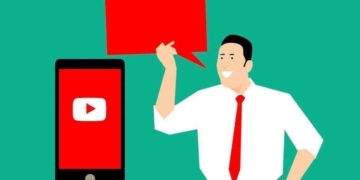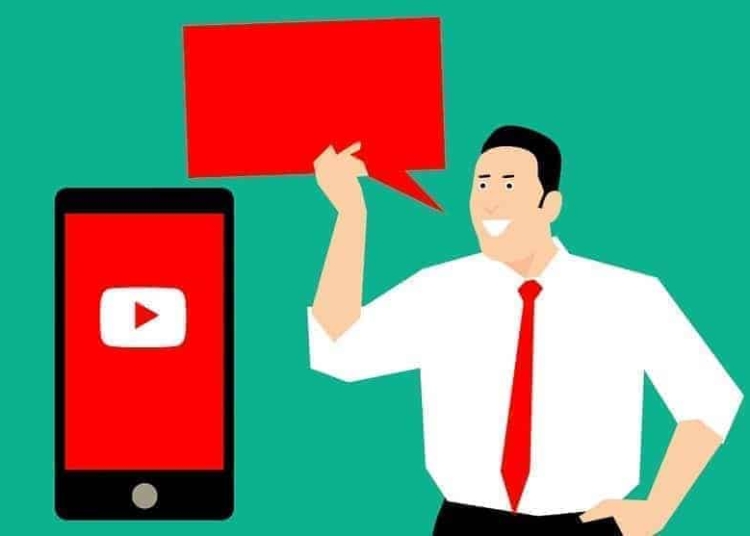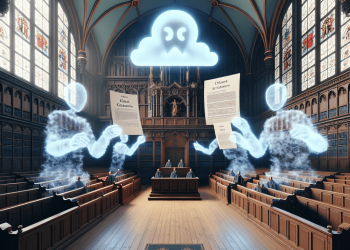If you follow my blog regularly, you will have noticed that I always like to include real proceedings or legal issues from my everyday life as a lawyer in my blogposts. I am currently concerned with the permissibility of reaction videos on YouTube.
What are Reaction Videos?
Experienced YouTube users know exactly what Reaction Videos are, because it’s a big trend among some big YouTubers. This involves videos of other YouTubers being shown in the background, which are then commented on by the other YouTuber. Often these Reactions are then in turn commented on by others or certain actions in the scene are recorded.
It is in the nature of this kind of videos or streams that a “foreign” video and thus foreign produced content is used in the own video – usually without asking the original creator for permission.
This can give rise to a wide range of legal issues.
Copyrights
The first question that might arise is whether the Reaction Video might infringe third-party copyrights. And this is indeed possible. As far as I know, there is still no judgement in the Federal Republic of Germany on the subject of “copyrights for Reaction Videos”, but that can/could certainly still come. All those whose copyrights or exploitation rights are already infringed in the original video could be affected. These rights would inevitably also be infringed in the video produced as a Reaction video. Whether this results in an additional claim against the creator of the Reaction video is questionable. However, the decision of the European Court of Justice on so-called framing could speak against this.
In 2014, the European Court of Justice ruled in an important landmark decision that framing links do not constitute communication to the public within the meaning of Art. 3 Par. 1 of the Information Society Directive, at least as long as this reproduction is not addressed to a new audience and no other reproduction technology is used. This decision of course concerns the integration of YouTube e.g. via IFrames on a homepage, as well as the follow-up decision of the ECJ of 09.03.2021, Az. C-392/19, which specifies that this is the case if there is no framing restriction in the original video. So if a video captures one’s own screen and a video – freely available on YouTube – is played in it, the situation is not identical, but it is quite comparable. Neither the creator of the original video nor third parties could then assert claims against the creator of the reaction video. It remains to be seen whether the courts will follow this view or whether there will be reasons to see this differently, for example because the producer of the original video will lose advertising revenue.
Among other things, however, it will also depend on the concrete form of the reaction video, since this could also be considered a quotation, for example, and thus be permissible under Section 51 UrhG.
Privacy
Another problem could arise if the original video violates other rights, e.g. trademark or personality rights. This is because they are repeated in the Reaction video and the creator of the Reaction video may not even notice when the original video is taken offline (by the creator of the original video or by YouTube itself). The question then arises as to whether the infringed party has its own claim against the creator of the reaction video (including, for example, claims for injunctive relief and damages) or whether the framing decision is also relevant here and only the principles of “Stoererhaftung” (Breach of Duty of Care) can be applied, i.e. a video must be removed, for example, if the infringed party has been notified of the possible infringement and only then does the infringed party have its own claims for injunctive relief. But you guessed it: I am not aware of any case law on this either, so I have a certain tendency myself and advise my clients accordingly, but I cannot yet back up this opinion with judgments.
Make it your own?
It is also intriguing to see whether the case law on “appropriation” is relevant to some of the issues that arise in the context of Reaction videos. This case law was further developed, among other things, by the Chefkoch.de ruling of the Federal Court of Justice of November 12, 2009. In this specific case, two recipe collections were involved. According to the BGH, the operators of the site at the time had not sufficiently checked who was entitled to the rights to the photos published on their platform. According to the BGH, the decisive factor was that the site operators had presented the recipes and photos as “their own content”. This case law has been expanded and adapted many times in the meantime, so that there could be one or the other “learning” here.
As always, however, I would definitely advise asking an experienced media law attorney for help with new trends in the media industry. Indeed, it is often possible to give advice which, in the event of legal uncertainty, enables the risk of a legal claim to be reduced. Currently, there is a risk of being sued for a Reaction video, against which one would have to defend oneself after a warning or in court proceedings. I would therefore advise against using this type of video, at least for content that is critical and hotly debated. Even though I believe that claims are difficult to enforce, especially if you are in the area of free speech and quotation rights, it can quickly cost 10,000 euros or more to defend yourself against claimants due to the often high amounts in dispute.































